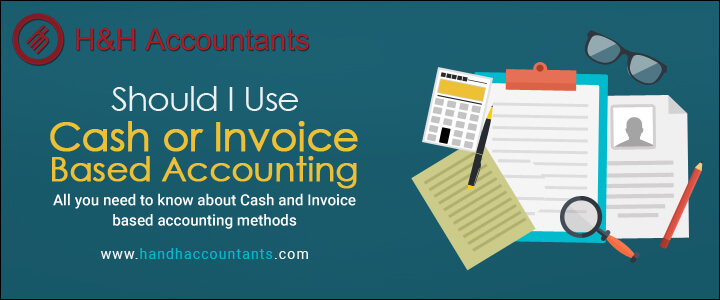
What is the difference between Cash and Invoice Accounting?
It’s important to be aware of the differences between cash and invoice based accounting as both have its advantages and disadvantages that affect your business.
When goods or services are sold, each business is liable to pay a cost to HMRC, the VAT cost depends on whether you business works through the basis of cash or invoice accounting. If your business uses invoice accounting, once an invoice is sent to a customer or client, even if you haven’t received payment for the sale of a goods or service, you are instantly charged for the VAT.
On the other hand if your business is using cash accounting, your business is only charged for the VAT of sales on the goods or products when payment is received. Your business is only eligible for cash based accounting if your annual turnover is less than £1.35 million.
Benefits of Cash Accounting
- Only pay the VAT when a customer or client pays for your goods or service.
- It’s easier to obtain sales records through bookkeeping as you won’t need to keep separate tabs on a variety of invoices.
- If a client or customer fails to pay you or if there is a delay, you won’t have worry about paying the VAT of the sale to the HMRC.
Disadvantages of Cash Accounting
- You can only reclaim VAT on a goods or service purchase when you have paid the business.
- It can limit the way you analyse your businesses cashflow accurately due to its simpler way of bookkeeping.
- You may not be eligible for cash accounting due to having a larger annual turnover or if you are a corporation.
Benefits of Invoice Accounting
- If your clients or customers may you instantly there can be a cash flow advantage.
- You’re able to monitor your cash flower easier and see which clients or customers pay you efficiently as well as automated accounts.
- If you already have a Sales Ledger and Purchase Ledger within your bookkeeping system then there’s no additional issue when it comes to calculating VAT on invoices.
Disadvantages of Invoice Accounting
- Even if customers or clients or slow at paying you, you still have to pay HMRC the VAT cost.
- For smaller businesses this way of handling cash flow can be more complicated and leave the company paying finances that they have not received yet which could cause issues.
- If a customer or client fails to pay your invoice your business is still charged the VAT on sales of goods and services, which you are only able to reclaim from the HMRC after 6 months.
How H&H Accountants Can Help You
If you require further support or information on whether you should be using Cash or Invoice based Accounting we will happily answer any of your questions. For further information on a range of important dates, take a look at our Tax Calendar. We can assist your Accounting needs so get in touch now by calling us on 01823 325610 or emailing us at more@handhaccountants.com.

